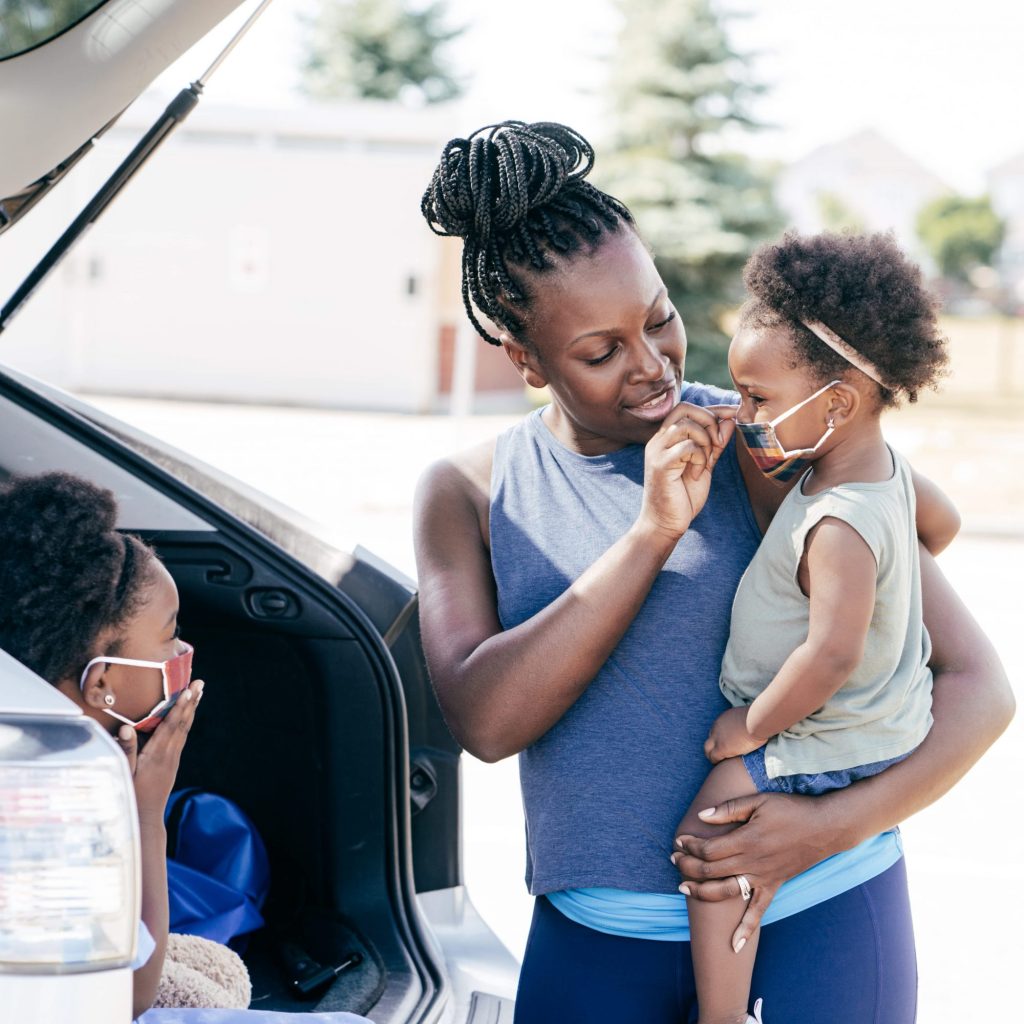As the Omicron variant races through homes, daycares, and schools at alarming rates, parents are trying to see a brighter side in their young children contracting COVID – namely, that their kiddos now have antibodies and are potentially safe from catching it again.
But, how do antibodies in children work, and just how long can this potential newfound immunity last?
“This is a great question,” Bayo Curry-Winchell, MD, a Regional Clinical Director at Carbon Health and a family-medicine doctor based in Nevada, told POPSUGAR. “Unfortunately, it comes with a complicated answer.”
What to Know About COVID Antibodies in Children
Dr. Curry-Winchell explained that when infected with COVID, or any virus, your immune system makes antibodies specifically to fight it. And once you have antibodies to a particular disease, they provide some protection from it.
According to the Centres For Disease Control and Prevention, risk of reinfection is low for at least the first six months following an infection with the virus that causes COVID-19. However, a recent study of antibodies in kids reveals a stark contrast with adults.
Kids may clear this virus more efficiently than adults and thus not need a strong antibody immune response to get rid of it. Although that is certainly good news for risks associated with pediatric COVID cases, it also showed that children thus produce fewer antibodies against the virus’s spike protein, which the virus uses to infect human cells.
The prevailing belief that a kid who contracted COVID is “safe” from getting it again is a fallacy, she said: “A lot of times, even now, people don’t understand that you could get it again.”
What to Know About COVID Reinfection Immunity in Children
Still, even a smaller amount of antibodies can provide some protection, but to what extent?
“We’re not sure how long that immunity lasts, so that’s the concerning part,” Curry-Winchell said. “Yes, you have a level of immunity, but is it a couple of weeks? Is it months? Is it years? It’s hard to know.”
Adding to the confusion? The fact that multiple variants continue popping up.
“There are different variants emerging,” Curry-Winchell said, noting that antibodies from the original coronavirus aren’t necessarily adept at warding off infection from one of these newer variants. “And there’s no way of knowing which variant they had. Maybe they had Delta first. There’s no guarantee they couldn’t still get Omicron.”
What’s most worrying is that past infections from COVID hav prompted some parents to opt out of vaccinating their child.
“I encourage kiddos that are eligible – that’s all kids 5 years and older – to still take the vaccine even if they had it because that’s going to provide that extra layer of protection, but we are seeing that parents are opting out,” Curry-Winchell said. “They’re saying, ‘No, I’m fine,’ or ‘My child got it, so they don’t need it.'”
She added: “They ask why they should still get it. I tell them if you have the opportunity to provide your child health for longer, or with less symptoms, that’s something to strongly consider. It increases your chance of having milder symptoms. I think if my kid could be sick for two days versus 10 days, that’s huge for quality of life, for returning back to school sooner, for all of those factors.”

